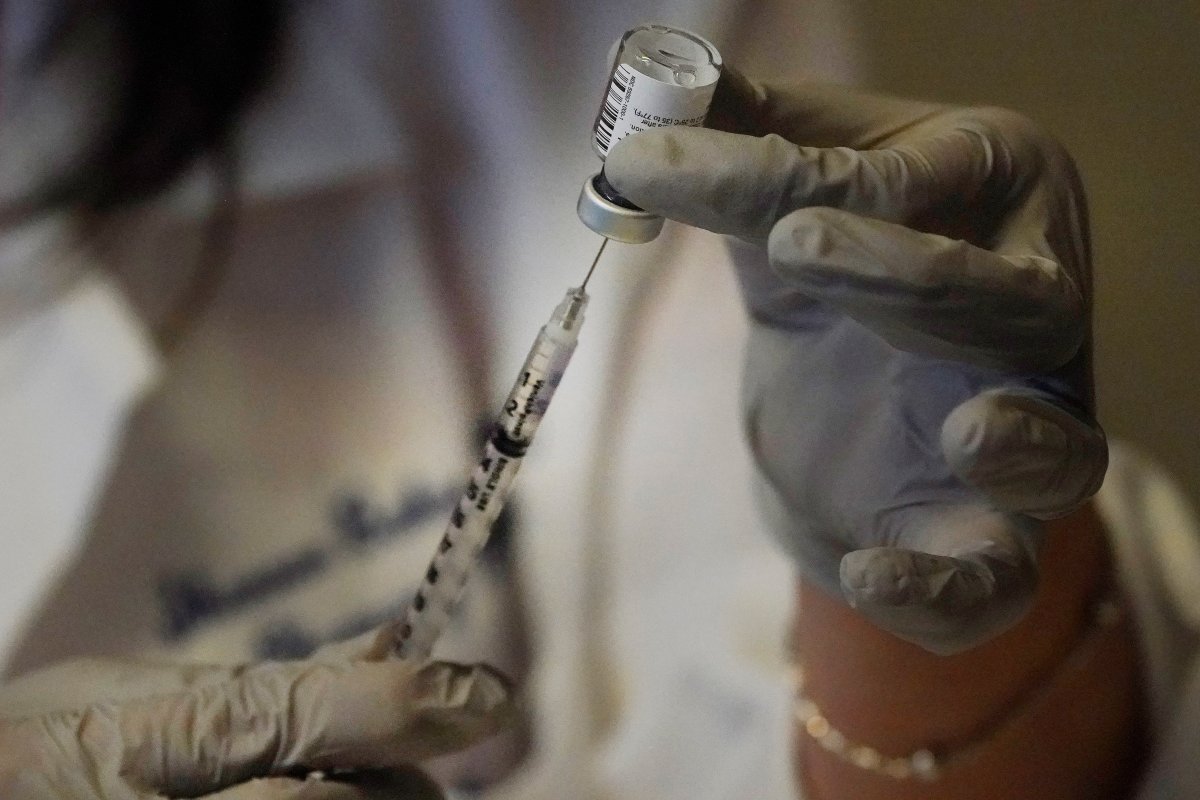Ottawa health officials gave a rough outline of the city’s COVID-19 vaccine distribution plan on Monday, which could see as many as half of the city’s population inoculated against the novel coronavirus by July.

While firm details on vaccine delivery dates and exact allocations for Ottawa are yet to be determined, up to 680,000 residents could be vaccinated in the first half of the year, according to a memo sent from Anthony Di Monte, the head of the city’s vaccine distribution task force.
Ottawa began vaccinating frontline health-care workers on Dec. 15 when the first shipments of the Pfizer-BioNTech vaccines arrived at the Ottawa Hospital, which is equipped with the cold-storage facilities needed to store the doses.

The Moderna vaccine, which has since been approved by Health Canada, has less stringent preservation requirements, will enable mobile teams, community clinics, pharmacies, family doctors and care providers at long-term care homes to join the distribution plan as doses become more widely available.
Canada has ordered 20 million doses of the Pfizer vaccine and 40 million of the Moderna — both of which require two shots to be effective — with the option to buy more.
The provincial vaccine rollout is divided into three phases, with Ontario currently in the first phase targeting health-care workers and some Indigenous communities.

Get weekly health news
If the two million doses Ontario expects to receive in this phase are distributed on a per-capita basis, Ottawa could expect a total of 160,000 doses — enough to inoculate 80,000 people. Di Monte notes that this is an “optimistic” projection, with the actual number of doses allocated to Ottawa potentially falling short of 160,000 in the first phase.
Anyone currently receiving the vaccine does so at the Ottawa Hospital Civic campus, which has the capacity to vaccinate 1,200 people per day, per the memo.
Ottawa Public Health is currently preparing community clinics to administer the vaccine to priority groups and can be ready by mid-January or sooner, depending on when the province ships the vaccine.
The four clinic sites will be the Horticulture Building at Lansdowne Park, the Eva James Memorial Centre in Kanata, the Orléans Client Service Centre and the Nepean Sportsplex.
Combined, these clinics will be able to administer 134,000 doses of the vaccine per month, operating from 8 a.m. to 8 p.m., seven days a week.
The second phase, expected to begin in the coming months, will see long-term care and retirement home residents added to the list as the Moderna vaccine becomes more widely available in Ontario.
But Di Monte said in his memo that Ottawa’s long-term care homes are not first on the list to receive Moderna doses, with areas of the province that are harder hit by the virus taking priority.
Ontario expects to receive 15 million doses of the vaccine in the second quarter of 2021, 1.2 million of which would go to Ottawa if a per-capita distribution model is used. If all doses are distributed by the end of the quarter, a total of 680,000 residents will be vaccinated against the virus — more than half of the city’s total population.
The vaccine will be distributed through the Ottawa Hospital and a total of seven community clinics in this phase, as well as mobile teams set up to administer shots in congregate living settings. Expanding distribution into pharmacies and other local hospitals here is contingent on provincial directives, Di Monte said.
In order to staff the three additional community clinics — locations of which have yet to be determined — OPH will need to add an extra 90 immunizers and 60 non-clinical support staff. The memo said these resources could be reallocated from the public health unit’s testing and contact tracing staff.
The third and final phase, targeted for the third quarter of 2021, will see the vaccine widely available to anyone who wants it. The availability of vaccine doses is expected to stabilize at this point as global supply chains scale up and additional vaccines are approved.
Flu clinics, pharmacies and primary health-care providers are expected to be added to the distribution mix in this stage.
The province-wide vaccination campaign will have numerous logistical challenges to overcome, which could affect the timelines Di Monte outlined. The memo highlights vaccine storage, transportation, security, supply management and booking demands as some of the key hurdles in the rollout.









Comments